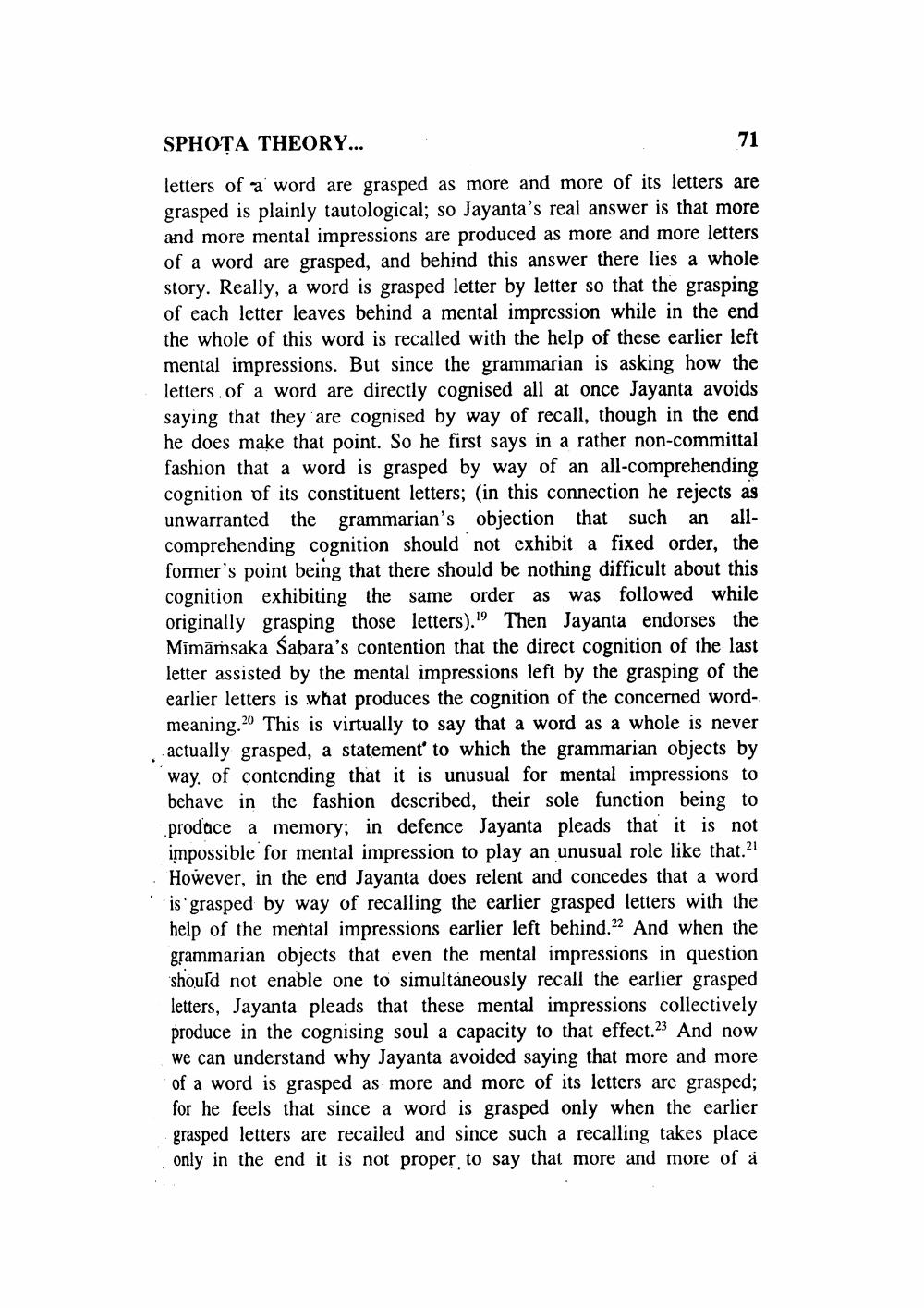________________
SPHOTA THEORY...
71
letters of a word are grasped as more and more of its letters are grasped is plainly tautological; so Jayanta's real answer is that more and more mental impressions are produced as more and more letters of a word are grasped, and behind this answer there lies a whole story. Really, a word is grasped letter by letter so that the grasping of each letter leaves behind a mental impression while in the end the whole of this word is recalled with the help of these earlier left mental impressions. But since the grammarian is asking how the letters of a word are directly cognised all at once Jayanta avoids saying that they are cognised by way of recall, though in the end he does make that point. So he first says in a rather non-committal fashion that a word is grasped by way of an all-comprehending cognition of its constituent letters; (in this connection he rejects as unwarranted the grammarian's objection that such an allcomprehending cognition should not exhibit a fixed order, the former's point being that there should be nothing difficult about this cognition exhibiting the same order as was followed while originally grasping those letters)." Then Jayanta endorses the Mimāṁsaka Sabara's contention that the direct cognition of the last letter assisted by the mental impressions left by the grasping of the earlier letters is what produces the cognition of the concerned wordmeaning.20 This is virtually to say that a word as a whole is never actually grasped, a statement to which the grammarian objects by way of contending that it is unusual for mental impressions to behave in the fashion described, their sole function being to prodace a memory; in defence Jayanta pleads that it is not impossible for mental impression to play an unusual role like that. 21 However, in the end Jayanta does relent and concedes that a word is grasped by way of recalling the earlier grasped letters with the help of the mental impressions earlier left behind.22 And when the grammarian objects that even the mental impressions in question should not enable one to simultaneously recall the earlier grasped letters, Jayanta pleads that these mental impressions collectively produce in the cognising soul a capacity to that effect.23 And now we can understand why Jayanta avoided saying that more and more of a word is grasped as more and more of its letters are grasped; for he feels that since a word is grasped only when the earlier grasped letters are recailed and since such a recalling takes place only in the end it is not proper to say that more and more of a




